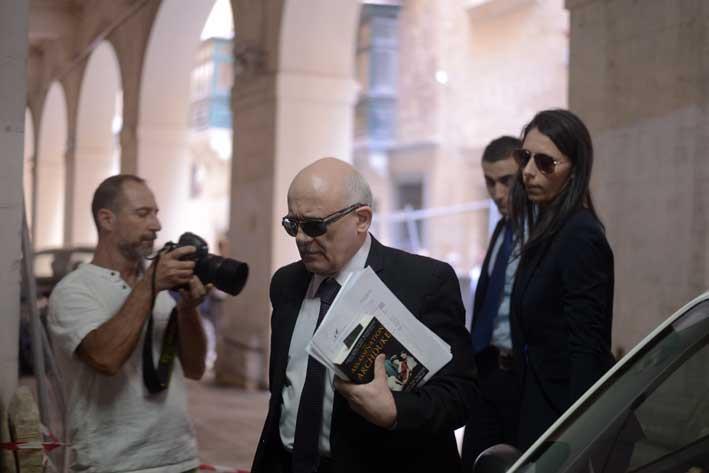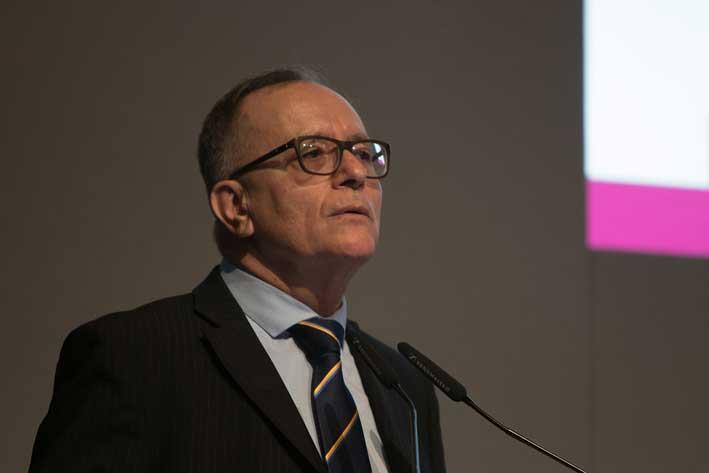Bank of Valletta has been accepting business from Libyan nationals without carrying out the necessary customer due diligence legally required of financial institutions, documents leaked to The Malta Independent on Sunday show.
The bank had, in the process, knowingly been in breach of its legal obligations under the prevention of Money Laundering and Funding of Terrorism Regulations according to documentation in the possession of this newspaper.
This breach had also been intentionally concealed from the relevant Maltese authorities. Not only was the bank’s flouting of the law in return for Libyan business concealed from the authorities, but the bank’s officials, according to sensitive documents leaked to this newspaper, had informed the authorities that all proper due diligence was, in fact, being applied across the board when this was not the case.
This newspaper also holds documentation showing how the bank went to little or no effort to seek information on the source of the Libyan funds being deposited at Bank of Valletta, a critical step of due diligence for identifying suspicious transactions related to money laundering, politically exposed people or the funding of terrorism.

Libya has become a hotbed for terrorist activity in the vacuum left behind by the ouster of former dictator Moammar Gaddafi. There are also billions of euros in Libyan state wealth that have been leaking out of the country over recent years.
This newspaper this week asked Bank of Valletta for information on the type of due diligence it applies when a foreign national opens a bank account; whether any irregularities along such lines have been reported within the bank; and whether a director or other high-ranking official of the bank is able to waive standard due diligence procedures for the opening of an account.
The bank replied with the following terse statement: “As with all account opening procedures, Bank of Valletta follows normal due diligence procedures as required by law and financial regulation.”
While the documentation in this newspaper’s possession directly implicates the bank itself in ignoring its due diligence requirements in return for welcoming Libyan funds over a number of years, the bank had insisted last August with this newspaper that it had begun strengthening its procedures on the opening of accounts by foreign nationals back in December 2013.

But documentation held by this newspaper shows that such action had little or no effect.
The bank’s announcement that it was strengthening its due diligence procedures had come in the immediate wake of the Joe Sammut scandal, in which the former Labour Party treasurer is facing court proceedings for having run a scam to open bogus companies for Libyan nationals, which qualified them for Maltese residency.
The information held by this newspaper also shows that the waiving of normal due diligence procedures was not limited to the Joe Sammut affair.

In its comments last August the bank stressed the role of intermediaries such as Mr Sammut (photo above). The documentation held by this newspaper, however, implicates the bank directly in turning a blind eye to customer due diligence.
Last August the bank said that while it could comment on its relationship with particular customers, it was incorrect to imply that BOV knowingly aided and abetted any intermediary to open accounts for illegitimate purposes.
The bank said that in December 2013, its board of directors commissioned an unnamed “anti-money laundering expert with international experience” to examine the bank’s processes when opening accounts for foreign individuals and corporates.
This expert was also asked to determine whether proper and effective anti-money laundering checks were built in the system that BOV had been using for several years.
In his report the unnamed expert made a number of recommendations to strengthen the opening of accounts process for foreign individuals and companies. The bank said its board had discussed these recommendations in March 2014 and had instructed the executive management to implement them as soon as possible.

(Bank of Valletta chairman John Cassar White)
It is understood, however, that the Maltese authorities were far from placated by such actions and that even after the March 2014 recommendations, concern had been flagged over the bank’s continued flouting of anti-money laundering and terrorism financing regulations.
The bank said that among the more important recommendations from the unnamed expert were the articulation of the ‘Customers’ Acceptance Policy’ and the undertaking of a new and thorough due diligence exercise of all intermediaries to determine whether they were considered suitable to introduce new business to the bank. The bank’s executive management conducted this detailed due diligence exercise on all intermediaries that introduced business to the bank.
As a result of this extensive exercise, a number of financial intermediaries, some of whom had been introducing new clients to the bank for over a decade, were considered as not having had the correct set-up or anti-money laundering processes in place. In March 2015 the bank informed these intermediaries that it would no longer accept introductions from them to open accounts for foreign residents or companies.
The bank said it takes its anti-money laundering obligations seriously and is in constant touch with banking regulators, the Financial Intelligence Analysis Unit and the police to ensure that only bona fide clients have access to banking facilities.